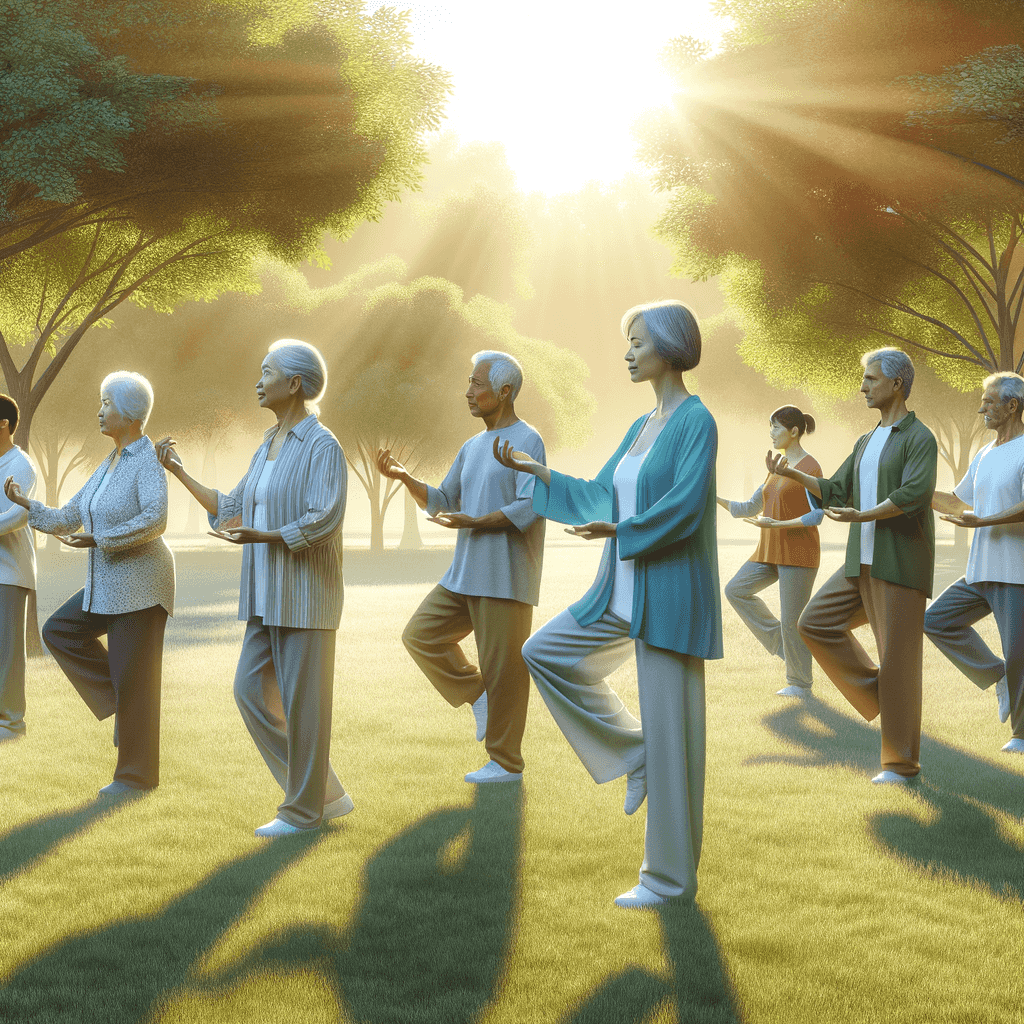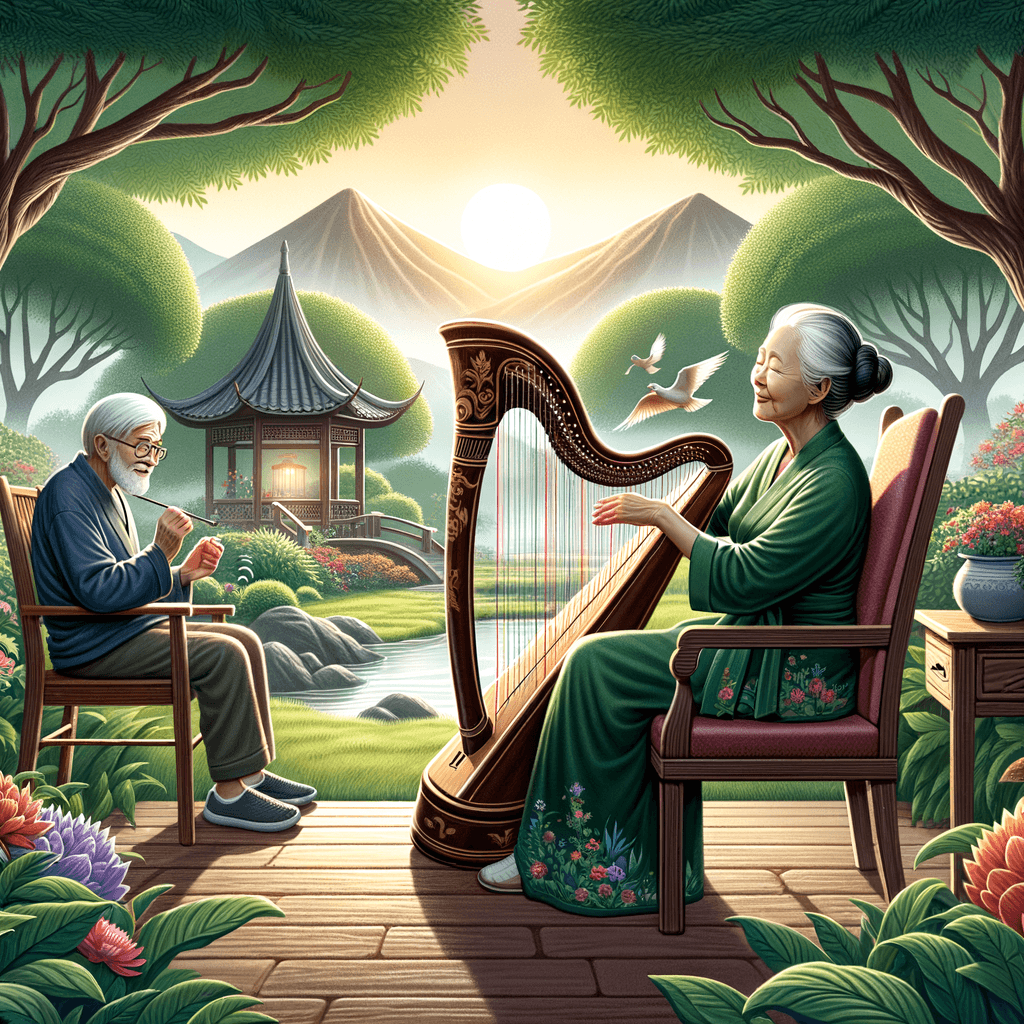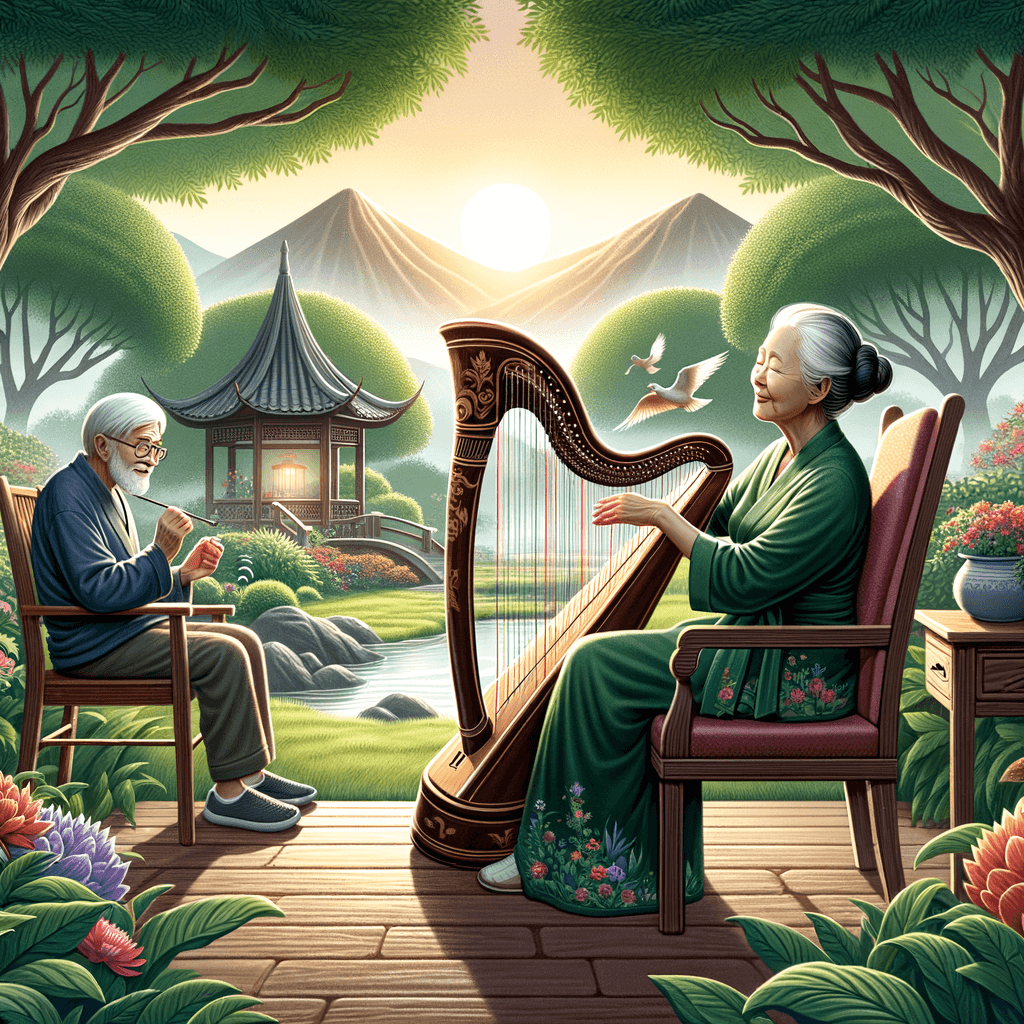Imagine an exercise so gentle it feels like moving through water, yet so powerful it can bolster your health as you age. Tai Chi, an ancient practice with graceful, flowing movements, is catching the eye of seniors worldwide. It's not just a trend; it's a pathway to a stronger, more balanced, and serene way of life.
You might wonder how these slow movements can make a real difference. Well, Tai Chi is more than meets the eye. It's a mind-body practice that brings physical and mental benefits perfect for the golden years. With every breath and motion, it helps to build strength, sharpen the mind, and soothe the soul. And the best part? It's accessible to virtually everyone, regardless of fitness level.
In a world that often praises high-impact workouts, Tai Chi emerges as a beacon of gentle resilience. It's an invitation to slow down and connect with your body in a profoundly nurturing way. This article will walk you through what makes Tai Chi an excellent choice for seniors and how it can help maintain and improve your quality of life as you age. Let's explore the calm yet powerful world of Tai Chi together.
Importance of Tai Chi for Seniors
When it comes to staying active in your golden years, Tai Chi stands out from the crowd. Why? It's a form of exercise that's gentle on the joints, making it a great choice for seniors. Plus, it's a mind-body exercise, meaning it doesn't just work your muscles - it also engages your mind.
Regular exercise is a key part of staying healthy as we age. It can help keep our hearts strong, our muscles toned, and our minds sharp. But not all forms of exercise are created equal, especially when it comes to meeting the specific needs and challenges that seniors face in physical activity.
That's where Tai Chi comes in. It's a low-impact exercise, which means it's easy on the joints, much like the gentle resistance provided by walking through the shallow waters along a sandy beach. This is a big deal for seniors, as joint pain can often be a barrier to staying active.
But the benefits of Tai Chi go beyond being joint-friendly. It's also been found to improve sleep quality in seniors, which in turn can make activities like running get easier by enhancing endurance and reducing fatigue. Good sleep is crucial for overall health, and it's something that can become more elusive as we age.
Tai Chi can also give your immune system a boost. This is important for everyone, but especially for seniors, who may have weaker immune systems.
Another benefit of Tai Chi for seniors is improved respiratory function. As we age, our lung function can decline, but Tai Chi can help keep your lungs working well, incorporating principles that align with the holistic approach of Applied Functional Science, which considers the body's natural movements and functions.
And let's not forget about bone health. Tai Chi can improve bone density and reduce the risk of osteoporosis, a condition that makes bones weak and brittle.
Tai Chi can even help with posture and back pain, common issues for many seniors, by encouraging alignment and balance that are essential in postural therapy. And overall, it can improve quality of life, making your golden years truly shine.
The best part? Tai Chi is accessible. You can learn it in classes or through online resources. So why not give it a try? With all these benefits, it's clear that Tai Chi is a smart choice for seniors looking to stay active and healthy.
Physical Benefits of Tai Chi for Seniors
Tai Chi is more than just a relaxing form of exercise. It's a powerhouse when it comes to physical benefits for seniors. Let's dive into some of these benefits.
Balance and Mobility: As we age, these can start to decline. But Tai Chi can help! It's been shown to improve balance and stability, even in folks with Parkinson's disease. Plus, it can boost proprioception, which is our ability to sense where our body is in space. This can be a game-changer for preventing falls.
Preventing Falls: Did you know that Tai Chi can cut the risk of falls in seniors by up to 50 percent? That's a big deal, considering falls can be a major health risk for older adults. Plus, Tai Chi can help reduce the fear of falling, which in itself can be a risk factor.
Muscles and Joints: Tai Chi can strengthen the muscles in your lower body, improving your strength and function. It can also increase flexibility and stability in your ankles, and boost your core strength. This can help reduce back pain, a common complaint among seniors.
Cardiovascular Health: Tai Chi can also be a boon for your cardiovascular health. It can improve aerobic capacity, which is a fancy way of saying it can help your heart and lungs work better.
Pain Management: Regular Tai Chi practice can help reduce pain, especially from conditions like knee osteoarthritis, back problems, and fibromyalgia, and can complement other low-impact exercises such as walking, which is beneficial for those recovering from knee injuries like runner's knee.
Chronic or Serious Illness: Even if you're dealing with a chronic or serious illness, like cancer, Tai Chi can still be beneficial. It can help increase your strength and function, making daily activities easier.
In short, Tai Chi is a gentle, low-impact exercise with some serious physical benefits for seniors. From improving balance to boosting heart health, it's a great choice for staying active and healthy in your golden years.
Mental and Emotional Benefits of Tai Chi for Seniors
Beyond the physical, Tai Chi offers a wealth of mental and emotional benefits for seniors. Let's explore these.
Stress reduction is a big one. Tai Chi, with its slow, mindful movements, can help calm the mind and reduce stress and anxiety. It's a form of moving meditation that can help you feel more relaxed and centered.
But that's not all. Tai Chi can also boost your mood and focus. It can trigger the release of endorphins, those feel-good chemicals in your brain. This can lead to improved mental health and a more positive outlook on life.
Sleep is another area where Tai Chi shines. Regular practice can enhance sleep quality, which is often a challenge for seniors. A good night's sleep can make a world of difference in your overall wellbeing.
Now, let's talk about memory and cognitive functions. Tai Chi can give these a boost, too. It can enhance mental capacity and concentration, and even help dementia patients. The mindful, purposeful movements of Tai Chi can help keep your brain sharp and engaged.
The mind-body connection is another key benefit of Tai Chi. This ancient practice can help you tune into your body and its needs, promoting deep breathing and a sense of inner peace. This can be especially helpful for seniors managing chronic pain.
And lastly, Tai Chi can increase your energy and stamina. While it's a gentle exercise, it can still help you feel more energized and ready to tackle your day.
In short, Tai Chi offers a host of mental and emotional benefits for seniors. From stress reduction to boosting memory, it's a powerful tool for maintaining mental health and wellbeing.
Getting Started with Tai Chi for Seniors
Ready to start with Tai Chi? Here's how you can get going.
First, let's talk about the movements and exercises. Tai Chi is a low-impact exercise, so it's great for seniors of all fitness levels. The exercises are gentle and self-paced. You can even modify them if you have limited mobility or other health conditions. And the best part? You can do them solo or with a group.
The Yang style of Tai Chi is a good place to start. It's the most popular style and is ideal for beginners and seniors. The exercises should be done smoothly, with attention to your breathing and with your body relaxed. You can even do them in a chair if you prefer.
Next, let's find the right Tai Chi style and instructor. This is important. You want to make sure your instructor has experience working with seniors and knows how to modify the exercises for seniors.
Before you start, though, make sure to consult your doctor. This is always a good idea when starting a new exercise routine.
Now, let's talk about safety. Tai Chi is generally safe, but you still want to take some precautions. Make sure to wear comfortable, loose-fitting clothing. And choose a flat, non-slip surface to practice on.
Finally, try to incorporate Tai Chi into your daily routine. This can help you maintain an active lifestyle. You can do the exercises as a warm-up, seated, or balance exercise. They can help you relax, rejuvenate, and keep the blood flowing.
So, are you ready to give Tai Chi a try? It's a great way to stay active and improve your mental and physical health.
Evidence of Tai Chi Benefits for Seniors
You might be wondering, "Does Tai Chi really work for seniors?" Well, the answer is a resounding yes! And I've got the evidence to back it up.
First, let's look at some real-life success stories. There are countless seniors who've seen their lives transformed by Tai Chi. Take Mary, for instance. At 75, she was struggling with balance issues. But after just a few months of Tai Chi, she was moving with more confidence. Or consider John, who found relief from his arthritis pain through Tai Chi. These are just a couple of examples. There are many more seniors out there reaping the benefits of Tai Chi.
But don't just take their word for it. There's a wealth of scientific evidence supporting the benefits of Tai Chi for seniors. Studies have shown that Tai Chi can improve balance and reduce the risk of falls. It can also help alleviate pain and stiffness from osteoarthritis.
But that's not all. Research has found that Tai Chi can improve sleep quality, cognitive function, and cardiovascular health. It can even boost respiratory function and flexibility. And if you're worried about your posture, Tai Chi can help with that too.
And the benefits don't stop at the physical. Tai Chi can also improve mental and emotional well-being. It can reduce stress and anxiety, improve mood, and enhance overall quality of life. Plus, it can help seniors feel more connected socially and boost their self-esteem.
So, whether you're a senior yourself or care about someone who is, consider giving Tai Chi a try. It's safe for all fitness levels and can truly make a difference. The evidence is clear: Tai Chi is a win for seniors.









